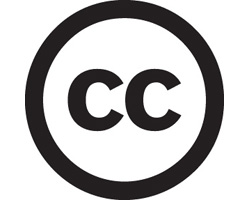 Who here is interested in the copyright standards of the Obama transition’s web-based information, documents, and videos? Everybody, right? Excellent.
Who here is interested in the copyright standards of the Obama transition’s web-based information, documents, and videos? Everybody, right? Excellent.
Open government advocates are cheering the fact that the Obama transition team has changed the copyright restriction on Change.gov to a Creative Commons Attribution 3.0 License, which allows users to grab content off Change.gov, copy it, remix it, and distribute it without limitation. All users have to do is attribute the content to Change.gov. It is the freest possible version of a copyright and a step in the right direction.
But there’s more to be done, of course. The open government community is pushing for a couple more concessions from the Obama people, the primary one being that content needs to be practically accessible in addition to legally accessible. That is to say, it matters little if content on Change.gov can be remixed and modified and disseminated, if the coding of the content doesn’t allow it to be copied in the first place. Here’s an explanation from open-government.us, where you can find more ideas for a truly open transition:
Citizens should be able to download transition-related content in a way that makes it simple to share, excerpt, remix, or redistribute. This is an essential digital freedom.
For example, while content may be posted on a particular site such as YouTube, because YouTube does not authorize videos on its site to be downloaded, transition-created content should also be made available on a site that does permit downloads. Just as it would be unacceptable for government websites to block the copying-and-pasting of publicly accessible text, making video accessible in a manner that does not allow easy or authorized excerpting and reuse blocks access and engagement.
We would therefore strongly encourage the transition to assure that the material it has licensed freely be practically accessible freely as well. There are a host of services — such as blip.tv — which not only enable users to download freely licensed content, but which also explicitly marks the content with freedom it carries.
We’ll see how far Obama wants to go in this regard; sacrificing control for the sake of openness is not something the executive branch has been good at of late, and Obama need not take drastic steps to improve on the behavior of his predecessor. But the fact that the Obama team seems cognizant of and amenable to the priorities of the open government community signals good things for the upcoming administration. Says Larry Lessig, “I’m glad the thought in this administration led to the right conclusion, so quickly, and in the midst of so much else going on.”















